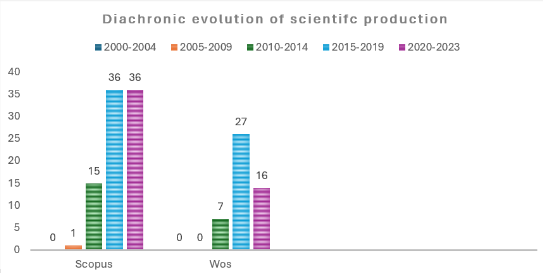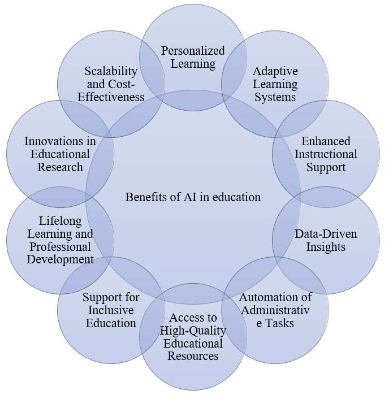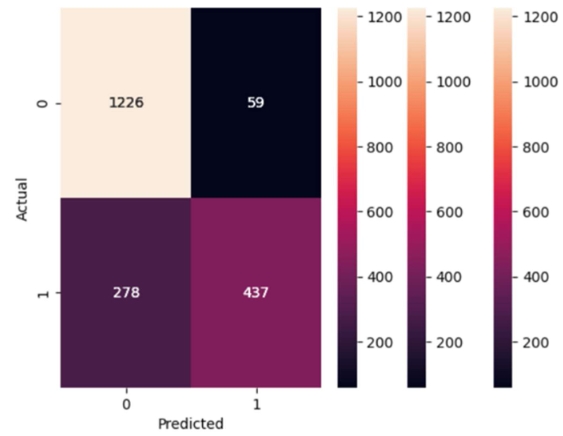Engineering students’ thoughts on teamwork and approaches to solving a problem with an underperforming member
Abstract
Engineering programs have to develop students’ teamwork skills. However, the onus on content specialists to teach teamwork skills may be challenging partly because of students’ negative attitudes towards and experiences with teamwork. This study investigated 295 engineering students’ thoughts on teamwork and the strategies they used to solve problems with underperforming team members. Data were collected using a survey and a discourse completion task. The results revealed that among the key reasons why the students liked such activities was the exchange of information and experience, increased quantity and quality of work, and interpersonal communication. However, they indicated lack of harmony, social loafing, lack of attention paid to tasks, and individual approaches to learning as reasons for skepticism about teamwork. As to problem-solving strategies, emphatic inquiry and judgmental questioning were most common. Based on these results, we suggest that engineering faculty collaborate with communication instructors in planning and executing soft-skills training for students. Engineering faculty should also be provided with technical support for the incorporation of teamwork activities in virtual environments.
References
[1]Imhonopi D, Urim UM. Gender, teamwork and management: A glimpse into the Nigerian Situation. Journal of Research in National Development. 2012; 10(3): 103-111.
[2]Accreditation Board for Engineering and Technology (ABET). 2018-2019 criteria for accrediting engineering programs. Available online: https://www.abet.org/wp-content/uploads/2018/02/E001-18-19-EAC-Criteria-11-29-17.pdf (accessed on 12 March 2023).
[3]Chowdhury T, Murzi H. Literature review: Exploring teamwork in engineering education. In: Proceedings of the 8th Research in Engineering Education Symposium: Making Connections; 10-12 July 2019; Cape Town, South Africa.
[4]Tucker R, Abbasi N. Bad Attitudes: why design students dislike teamwork. Journal of Learning Design. 2016; 9(1): 1. doi: 10.5204/jld.v9i1.227
[5]Wolfe J, Powel EA, Schlisserman S, Kirshon A. Teamwork in engineering undergraduate classes. What problems do students experience? In: Proceedings of the 2016 ASEE Annual Conference & Exposition; 26–29 June 2016; New Orleans, Louisiana, USA.
[6]Wolfe J, Powell E. Biases in interpersonal communication: How engineering students perceive gender typical speech acts in teamwork. Journal of Engineering Education. 2009; 98(1): 5-16. doi: 10.1002/j.2168-9830.2009.tb01001.x
[7]Schirato T, Yell S. Communication and Culture. SAGE; 2000.
[8]Bear JB, Woolley AW. The role of gender in team collaboration and performance. Interdisciplinary Science Reviews. 2011; 36(2): 146-153. doi: 10.1179/030801811x13013181961473
[9]Basow SA, Rubenfeld K. “Troubles talk”: Effects of gender and gender-typing. Sex Roles. 2003; 48(3/4): 183-187.
[10]Amelink CT, Creamer EG. Gender differences in elements of the undergraduate experience that influence satisfaction with the engineering major and the intent to pursue engineering as a career. Journal of Engineering Education. 2010; 99(1): 81-92. doi: 10.1002/j.2168-9830.2010.tb01044.x
[11]Samad AA, Rashid, Juridah M, et al. Investigating the implementation of team-based learning in a university level teacher education course. International Journal of Asian Social Science. 2014; 4(2): 249-257.
[12]Avery CM, Walker MA, Murphy EO. Teamwork is an Individual Skills: Getting Your Work Done When Sharing Responsibility. Berrett-Koehler Publishers; 2001.
[13]Payne BK, Monk-Turner E. Students’ perceptions of group projects: the role of race, age, and slacking. College Student Journal. 2006; 40(1): 132-139.
[14]Dawes L, Senadji B. Strategies to engage engineering students in group project work. In: Proceedings of the International Conference on Engineering Education (ICEE-2010); 18-22 July 2010; Gliwice, Poland.
[15]Deveci T, Ayish N. Personal responsibility and interpersonal communication in a project-based learning environment. International Journal of Social Sciences and Education Research. 2018; 4(1): 1-17. doi: 10.24289/ijsser.331780
[16]Dörnyei Z. Research Methods in Applied Linguistics. Oxford University Press; 2007.
[17]Babbie ER. The Practice of Social Research, 14th ed. Cengage Learning; 2016.
[18]Braun V, Clarke V. Using thematic analysis in psychology. Qualitative Research in Psychology. 2006; 3(2): 77-101. doi: 10.1191/1478088706qp063oa
[19]Jamieson MK, Govaart GH, Pownall M. Reflexivity in quantitative research: A rationale and beginner’s guide. Social and Personality Psychology Compass. 2023; 17(4). doi: 10.1111/spc3.12735
[20]Hendricks C. Improving Schools Through Action Research. Allyn Bacon; 2006.
[21]Beddoes K. Interdisciplinary teamwork artefacts and practices: A typology for promoting successful teamwork in engineering education. Australasian Journal of Engineering Education. 2020; 25(2): 133-141. doi: 10.1080/22054952.2020.1836753
[22]Deichmann D, Jensen M. I can do that alone…or not? How idea generators juggle between the pros and cons of teamwork. Strategic Management Journal. 2017; 39(2): 458-475. doi: 10.1002/smj.2696
[23]Meier KS. Gender barriers to communication. Available online: https://work.chron.com/gender-barriers-communication-6858.html (accessed on 12 March 2023).
[24]Pfaff E, Huddleston P. Does it matter if I hate teamwork? What impacts student attitudes toward teamwork. Journal of Marketing Education. 2003; 25(1): 37-45. doi: 10.1177/0273475302250571
[25]Kirstein KD. The effect of cultural dimensions on the development of intra-team trust in global virtual teams. In: Distributed Team Collaboration in Organizations: Emerging Tools and Practices. IGI Global; 2011. pp. 64-81. doi: 10.4018/978-1-60960-533-9.ch005
[26]Deveci T. Freshman students’ emotional intelligence and team-work satisfaction levels. A comparative study: Gender and nationality. Yuksekogretim Dergisi. 2015; 5(1): 35-43. doi: 10.2399/yod.15.007
[27]Olshtain E, Weinbach L. Interlanguage features of the speech act of complaining. In: Kasper G, Blum-Kulka S (editors). Interlanguage Pragmatics. Oxford University Press; 1993. pp. 108-122. doi: 10.1093/oso/9780195066029.003.0006
[28]Reisinger Y, Turner L. A cultural analysis of Japanese tourists: Challenges for tourism marketers. European Journal of Marketing. 1999; 33(11/12): 1203-1227. doi: 10.1108/03090569910292348
[29]Al Omari J. Understanding Arab Culture: A Practical Cross-Cultural Guide to Working in the Arab World. Constable & Robinson; 2008.
[30]Staines G, Tavris C, Jayaratne TE. The queen bee syndrome. Psychology Today. 1974; 7(8): 55-60. doi: 10.1037/e400562009-003
[31]Tajfel H, Turner JC. An integrative theory of intergroup conflict. In: Austin WG, Worchel S (editors). The Social Psychology of Intergroup Relations. Brooks/Cole; 1979. pp. 33-37.
[32]Ridgeway CL. Framed by Gender: How Gender Inequality Persists in the Modern World. Oxford University Press; 2011.
[33]Rudman LA, Glick P. Prescriptive gender stereotypes and backlash toward agentic women. Journal of Social Issues. 2001; 57(4): 743-762. doi: 10.1111/0022-4537.00239
[34]Oakley B, Felder, Richard M, et al. Turning student groups into effective teams. Journal of Student Centered Learning. 2004; 2(1): 9-34.
[35]Hartford BS, Bardovi-Harlig K. Experimental and observational data in the study of interlanguage pragmatics. Pragmatics and Language Learning. 1992; 3: 33-52.
Copyright (c) 2024 Tanju Deveci, İdris Bedirhanoğlu

This work is licensed under a Creative Commons Attribution 4.0 International License.









